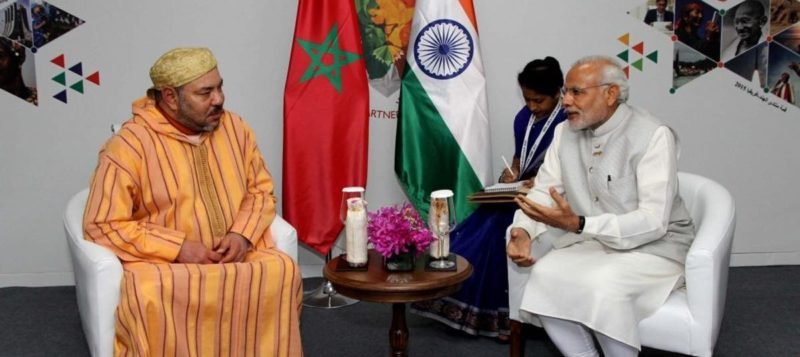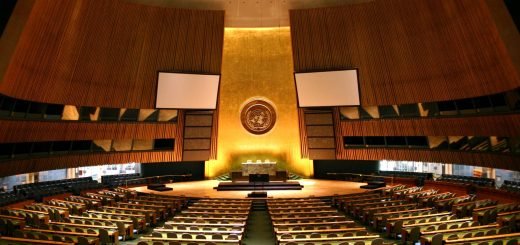The Untapped Potential of India-Morocco Bilateral Relations

Engagements based on the historical ties going back to the travels of Moroccan traveller Ibn Batuta in the 14th century, whose chronicles are a source of rare insight into medieval Indian history, India’s relations with Morocco, an important African and Arab country have become comprehensive and meaningful with multiple high-level visits undertaken by both the sides in last few years.
Influenced by African, Mediterranean, Middle Eastern, and European civilizations and cultures, the tolerant society of Morocco share varied liberal values of plurality and diversity, tolerance, communal harmony and rights of minorities with India, that produces a convergence of outlook and acts as a catalyst in promoting mutual understanding on a range of issues. Experiences of political solidarity beginning with India’s support to the Moroccan freedom movement and shared membership of Non-Aligned Movement has been instrumental in galvanising both the sides to undertake measures in order to transform bilateral ties, that got elevated to the status of strategic partnership in 2015.
Nevertheless, there are dimensions of relationship which are still imbued with untapped potential which needs to be fully explored, exploited and developed.

With the outbreak of Covid-19, and India’s shipment of 6 million units of HCQ tablets to Morocco and efforts to deliver eITEC courses for capacity building, which witnessed the attendance of one of the representatives of Morocco’s Ministry of Health underlines the growing ties between both the countries and is a significant manifestation of India’s support to Morocco in times of crisis.
India’s ‘Medical Diplomacy’ in this pandemic has reinforced the credentials of India as a responsible stakeholder globally and its ability to support African countries in times of crisis. Optimistic take of India’s Ambassador to the Kingdom of Morocco, HE Shambhu S. Kumaran on the bilateral relationship in an interview given to Moroccan news agency recently, where he outlined the possibility of exploration of new forms and partnership opportunities across sectors between both the countries to mitigate the crisis of COVID-19 is reflective of the significance and understanding attached to the ties.
The rapid expansion of COVID-19 outbreak has illustrated cracks in healthcare systems around the world, impacting infrastructure, workforce and equipment in every nation. Now more than ever, the imperative of having assured right to the highest attainable standard of health is being recognised across the world and complementary sectoral priorities of both the nations in healthcare need to be translated into substantial cooperation and engagement. Besides, enhancing cooperation on infrastructure development, research & capacity building programmes, emphasis on virtual healthcare cooperation has the required potential to supplement the cause of efficient and inclusive healthcare system.
However, the cost of Internet in Morocco being very high, cooperation on Digitization and Information Technology is a prerequisite to ensure accessible virtual healthcare system.
With the governments playing a facilitating role by enabling ‘environment of trust’ in which Markets thrive, it is imperative for the private sector of the two countries to take the lead through engagements on a more frequent basis. A UN report in 2017 had disclosed that around 7 million Moroccans or an astonishing 20.6 percent of the population, were suffering from obesity as of 2014, such large figures of Obesity with potential to develop a number of serious health problems including heart diseases and strokes, overburdening the already limited health infrastructure calls for cooperation on Ayurveda and Yoga to ensure cost-effective long term medical solutions.
Given the projected devastating impact of the pandemic as estimated by multiple agencies, on these two developing economies of Global South, the social capital of trust and latent goodwill that underpins the bilateral relations needs to be utilised in order to bring greater coherence in political dealings at apex level, to mitigate the crisis inflicted by the deadly virus.
Seen as a gateway to Africa by Indian businesses, Morocco with stable polity and promising economic returns offers safe haven to invest and presence of leading Indian companies in several sectors reflects the aligned interest of both the sides. The trade figures mainly dominated by the Moroccan phosphate and its derivatives used for the production of fertilisers needs to be broadened to a more composite exchange by adding non-traditional items.

Moreover, in view of Morocco’s known strength in sectors like food processing, private actors in Morocco should look at India with greater seriousness. Located at the crossroads of African and European market, Morocco can cater to the needs of leading Indian firms, eyeing increased footprint in the said markets and thus engagements at governmental level must be supplemented by frequent interaction between private sector through mechanisms like business delegation and forums. There is also a scope of cooperation on capacity building and skill enhancement in order to leverage the rich demography of both the nations and adapt to the fast-changing paradigm of the manufacturing world.
The long-proposed scope of cooperation modelled on tripartite base involving Morocco, India and Sub-Saharan African countries can create a win-win situation for all the three sides and must be considered seriously for the common good of all. Going forward, liberal Visa and trade policies can be of great help in ensuring increased trade engagements and enhanced people-to-people connect.
Experiencing repeated terrorist incidents and sharing liberal values that eschew extremism, both the nations can upgrade the relations into a qualitatively higher level by effective cooperation on counter-terrorism and radicalisation. Setting up of a Joint Working Group on Counter-Terrorism in 2019, to develop efficient mechanisms for real-time exchange of information and stanch the flow of terrorist financing has facilitated the endeavour of both the nations to fight terrorism in all its forms and manifestations.
Also, it is important for both the nations to work together by including other countries in the region to develop a common approach and joint strategy to fight the scourge of terrorism that continues to inflict harm on human communities across the globe.
The scale of the impact of the pandemic and the inefficacy of existing fractured mechanism of global governance in mounting a collective response has demonstrated the need of new global governance based on inclusiveness, common responsibility, and dialogue to represent the contemporary realities of 2020 and face the upcoming global challenges. Both the nations have been the consistent votaries of reformed global institutions and cooperation on issues of global significance through better-placed dialogue mechanism needs to be enhanced in order to bring peace and prosperity to all.
Thus, by working on a range of complementaries towards a qualitative upgradation of engagements, New Delhi and Rabat can realise the untapped potential of bilateral relations.


















